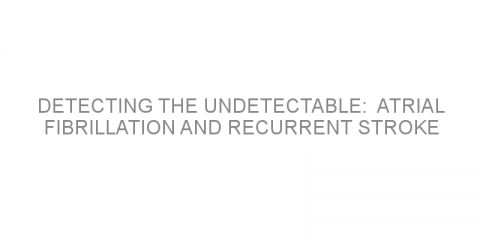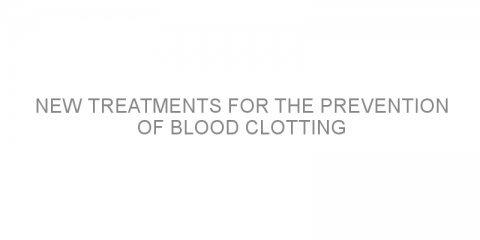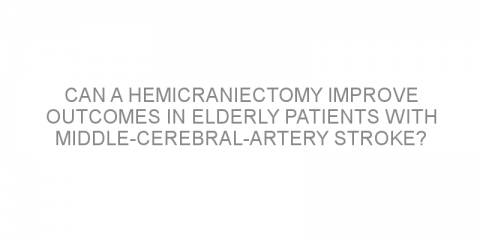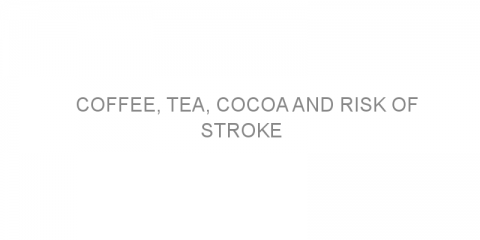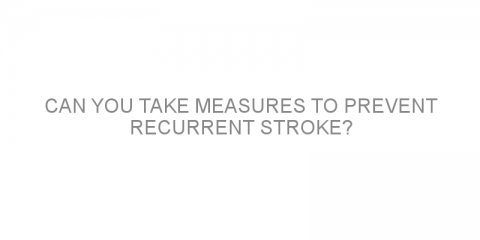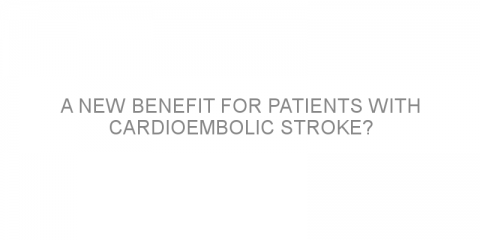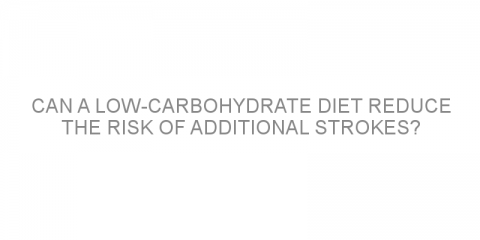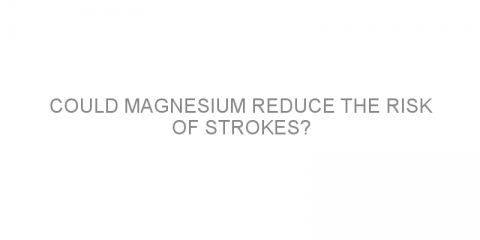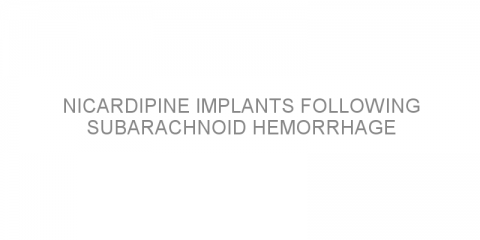In a nutshell This study examined whether continuous prolonged electrocardiography (ECG) monitoring would increase the detection rates of atrial fibrillation compared to standard ECG monitoring. Some background Atrial fibrillation, an arrhythmia (abnormal rhythm) of the heart where the atria (the chambers that receive blood into the...
Read MoreStroke Posts on Medivizor
New treatments for the prevention of blood clotting
In a nutshell The authors provided information on several new oral anticoagulant drugs. Some background The clinical burden of thromboembolic diseases (diseases in which a clot forms in a blood vessel which may be carried by the blood stream to another vessel) and the limitations of current therapies have prompted the development of new oral...
Read MoreCan a hemicraniectomy improve outcomes in elderly patients with middle-cerebral-artery stroke?
In a nutshell The authors aimed to assess the benefits of hemicraniectomy in elderly patients with middle-cerebral-artery stroke. Some background Middle-cerebral-artery stroke is the sudden onset of functional abnormality of the brain resulting from infarction (obstruction of blood supply) or ischemia (inadequate blood supply) to the...
Read MoreCoffee, Tea, Cocoa and Risk of Stroke
In a nutshell The author reviewed the association between coffee, tea, cocoa and stroke. Some background Polyphenols are abundant micronutrients in our diet, and evidence for their role in the prevention of degenerative diseases such as cancer and cardiovascular diseases is emerging. The polyphenols in coffee, tea and cocoa may reduce the risk of...
Read More9 Tips for Sharing Information with Your Doctor
How do you share information with your doctor? This is a tough question. If you have had a bad experience or if you have been afraid to even broach something new with your doctor, this is the post for you. We asked two patient activists how they talk to their physicians and they provided us with tips that can help when sharing information. From Patient...
Read MoreCan you take measures to prevent recurrent stroke?
In a nutshell The author of this article assessed treatments for secondary stroke prevention. Some background Survivors of stroke and transient ischemic attacks (dysfunction of the nervous system from temporary loss of blood flow) are at risk of a recurrent stroke, which is often more severe and disabling than the initial event. Recurrent strokes...
Read MoreThe benefits and risks of oral antiplatelet therapy
In a nutshell The authors conducted a review of oral antiplatelet therapy in patients with acute ischemic stroke. Some background In people with acute ischemic stroke, platelets (small cell fragments in the blood) become activated and can cause blood clots to form and block an artery in the brain, resulting in damage to part of the brain. Such...
Read MoreA new benefit for patients with cardioembolic stroke?
In a nutshell This study examined the effect of statins on mortality (death) and stroke recurrence in patients with cardioembolic stroke. Some background Cholesterol is known to play a major role in the development of cardiovascular disease, including strokes. Cholesterol reducing drugs such as statins, which inhibit the synthesis...
Read MoreImpaired glucose regulation predicts mortality among stroke patients
In a nutshell This study examined whether impaired glucose regulation could be used to predict the outcome of patients following an ischemic stroke. Some background While diabetes and high blood levels of fats and sugars are known to increase the risk of strokes and poor prognosis in general, it remains uncertain if impaired glucose regulation...
Read MoreCan a low-carbohydrate diet reduce the risk of additional strokes?
In a nutshell The current study examined the effects of glycemic index and glycemic load on the risk of strokes. Some background The ingestion of carbohydrates (which are found in high amounts in foods such as pasta, rice, vegetables, bread and fruits) causes a fast rise in blood glucose (sugar) levels, as carbohydrates are converted to glucose as...
Read MoreCould magnesium reduce the risk of strokes?
In a nutshell This study examined whether dietary intake levels of magnesium, potassium or calcium affect the risk of strokes. Some background Several factors, including high blood pressure, are known to significantly increase the risk of developing new strokes. Low levels of the minerals potassium, magnesium and calcium have been associated with...
Read MoreNicardipine implants following subarachnoid hemorrhage
In a nutshell This phase II study evaluated the efficacy of nicardipine prolonged-release implants (NPRIs) in the management of cerebral vasospasm following a hemorrhagic stroke. Some background Following a hemorrhagic stroke (rupture of a blood vessel leading to impaired blood supply to the brain; know as ischemia) blood vessels in the area of...
Read More
